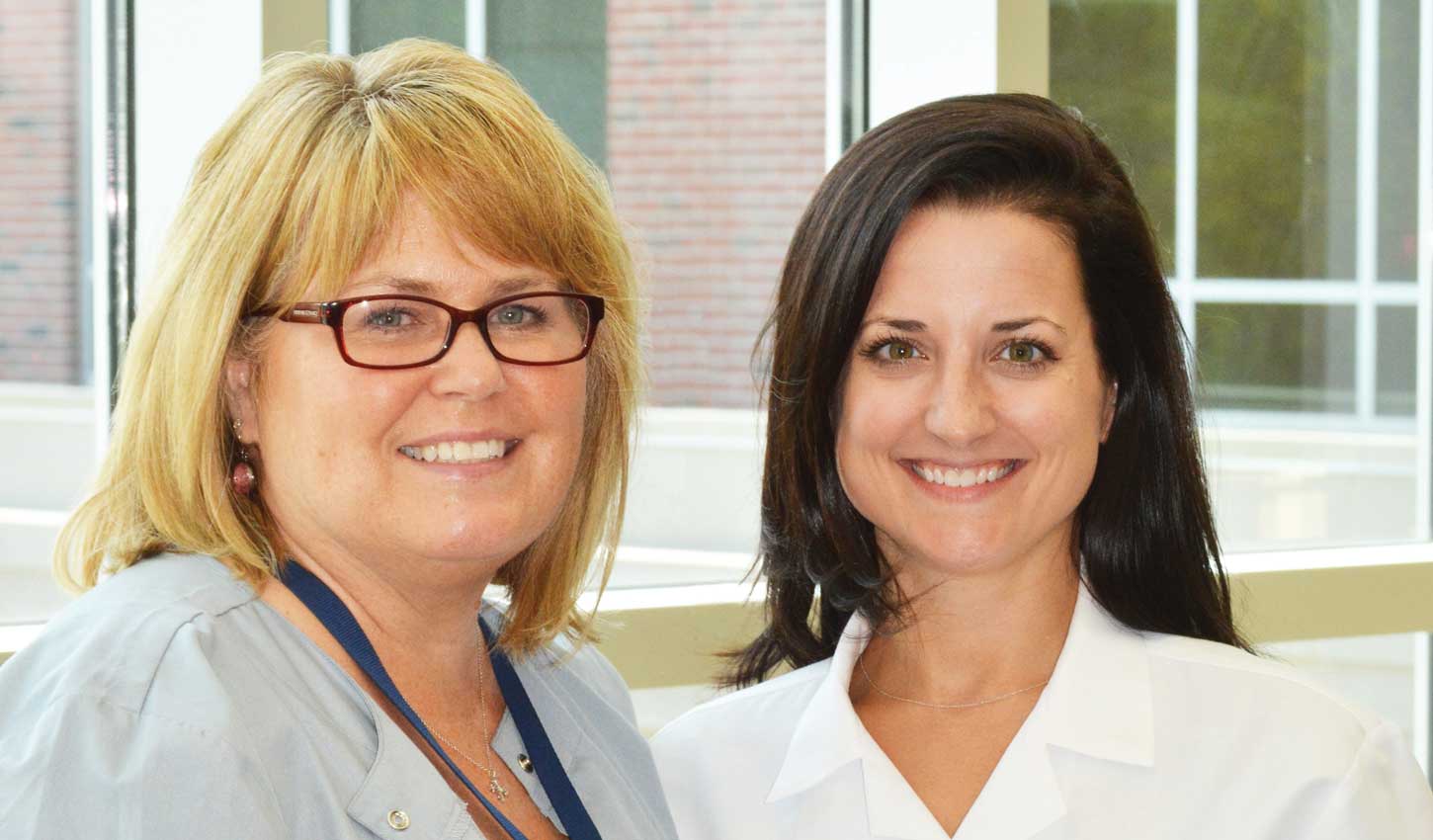02/04/2019
Cancer Treatment: What You Should Know About Gynecological Cancer
Q&A with Dr. Amy Bregar
Massachusetts General Hospital Gynecologic Oncologist Amy Bregar, MD, has joined Wentworth-Douglass Hospital’s Seacoast Cancer Center. In coordination with Mass General’s Center for Gynecologic Oncology, WDH’s Gynecology Oncology Program offers women on the Seacoast local access to expert specialized care for gynecologic cancers, including cervical, endometrial, ovarian and uterine cancer.
Each year in the United States, more than 100,000 women are diagnosed with gynecologic cancers. Here, Dr. Bregar discusses some the main warning signs and newest treatments available to women.
What are the signs and symptoms of gynecologic cancer?
Gynecologic cancer starts in a woman’s reproductive organs. The most common diagnoses are ovarian, cervical and uterine cancer, but other types include vaginal and vulvar cancer.While they are often discussed as a group, each gynecologic cancer has its own set of distinct symptoms and risk factors. Some possible symptoms include abnormal vaginal bleeding or discharge, feeling full too quickly after eating, pelvic pain or pressure, bloating, and more frequent or urgent need to urinate, among others.
What I like to stress is the importance of recognizing what is normal for your body and paying attention when something is different. For instance, almost all women experience occasional bloating, but if you are suddenly experiencing persistent bloating, you should tell your doctor about it.
A fact worth noting is that cervical cancer is the only gynecologic cancer that can be detected through routine screening – so schedule a Pap test if you are due for one. This easy screening can detect abnormalities before they become cancer. Cervical cancer is unique among the gynecologic cancers in that it is most often caused by a virus. Human Papillomavirus (HPV) causes 70% of cervical cancers. Accordingly, the Centers for Disease Control and Prevention recommend the HPV vaccine for girls and boys starting at age 11 or 12, and the vaccination has been recently approved by the Food and Drug Administration for men and women up to 45 years old.

If you are diagnosed with gynecologic cancer, what treatment options are available?
As a gynecologic oncologist, I am specially trained to treat women’s reproductive cancers. Cancer treatment depends on the type of cancer and how far it has spread, but they are usually treated through a combination of surgery, chemotherapy and radiation therapy. I can perform some surgeries here at Wentworth-Douglass, but more complex cases may need to be done at Mass General. The Seacoast Cancer Center also has a vibrant clinical trials program, so patients can benefit from access to trials investigating potentially new or more effective treatment options.
Research has shown that women who have access to gynecologic oncology specialists have better outcomes than women who do not, so we are very pleased to offer this level of care to women right here on the Seacoast.
What can a patient expect when receiving care at WDH’s Gynecology Oncology Program?
Offering women the option to receive their care close to home is critical to their overall health and well-being. The Seacoast Cancer Center’s expertise and technology, and full array of supportive services, is especially equipped to offer women the most comprehensive, personalized and compassionate care in the region.
As the GYN Oncology Program Manager, Kathy Quinn, RN, OCN, plays a vital role in helping to coordinate seamless care for patients between our program, the radiation and medical oncology teams and the many other integrated services available at the Seacoast Cancer Center, such as social work, rehabilitation services, and palliative care. It’s a truly multidisciplinary approach to care bringing all these specialties together to create a personalized approach to each woman’s needs.
Learn more about the Gynecologic Oncology Program at Wentworth-Douglass Hospital, or contact Kathleen Quinn, BSN, RN, OCN, Gynecology Oncology Program Manager, at (603) 609-6024.